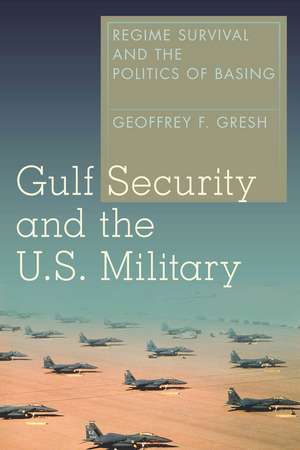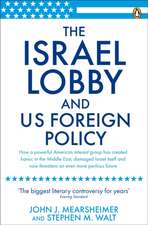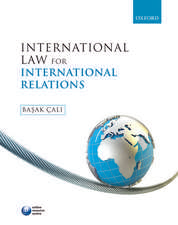Gulf Security and the U.S. Military: Regime Survival and the Politics of Basing
Autor Geoffrey Greshen Limba Engleză Hardback – 9 iun 2015
Understanding the dynamics of base politicization in a Gulf host nation—or any other—is therefore vitally important for the U.S. today. Gulf National Security and the U.S. Military examines both Gulf Arab national security and U.S. military basing relations with Gulf Arab monarchy hosts from the Second World War to the present day. Three in-depth country cases—Saudi Arabia, Bahrain, and Oman—help explain the important questions posed by the author regarding when and why a host nation either terminated a U.S. military basing presence or granted U.S. military basing access.
The analysis of the cases offers a fresh perspective on how the United States has adapted to sometimes rapidly shifting Middle East security dynamics and factors that influence a host nation's preference for eviction or renegotiation, based on its perception of internal versus external threats.
Preț: 447.25 lei
Preț vechi: 552.16 lei
-19% Nou
85.59€ • 89.03$ • 70.66£
Carte tipărită la comandă
Livrare economică 14-28 aprilie
Specificații
ISBN-10: 0804794200
Pagini: 280
Dimensiuni: 152 x 229 x 20 mm
Greutate: 0.5 kg
Editura: Stanford University Press
Colecția Stanford Security Studies
Recenzii
"I do not know of any book that goes into this level of detail about the specific events in the long process by which the US replaced the British as the primary external power in the Gulf. It provides a piece to the puzzle vital for understanding the hot-and-cold strategic duets the United States has played with Saudi Arabia, Bahrain, Oman, and other allies in the region."—Peter Dombrowski, Professor of Strategy, the US Naval War College
"This powerful and comprehensive look at security in the Arabian Gulf and the US role in creating and sustaining it should be mandatory reading for policy makers. Geoffrey Gresh has written an up-to-the-minute account of how our key friends in the region view their security not only in the Gulf, but the world. Superb!"—Admiral James Stavridis, USN (Ret), former NATO Supreme Allied Commander and Dean of The Fletcher School of Law and Diplomacy at Tufts University
"Overall, the analysis provided in the book is extremely valuable to US policy makers and officers in charge of American bases in those regions, as they will find important insights and inspirations from Gresh's book. The lessons from this book can also be of great interest to policy advisors concerned with how the United States today can help countries in the Gulf regions to enhance their national security facing the severe threats from the rise of Islamic State (ISIS) and to reduce the risk of increasing internal security threats for those countries."—Junyuan Rao, Naval Historical Foundation
Notă biografică
Cuprins
This chapter provides a theoretical and strategic overview of the U.S. military basing presence in the Gulf from the Second World War to the present. It lays a framework for examining the history of the U.S. military in the Gulf by placing the book within the larger base politics literature, in addition to providing a broad overview on the global evolution of U.S. military basing following the Second World War. Base politics and basing access for military forces is one of the oldest enduring features of international relations among nations and empires. The central question posed here is when and why did base politicization occur in Gulf Arab host nations. External and internal security dynamics linked to a host regime's survival are the main drivers influencing Gulf Cooperation Council nations either to accept or expel the U.S. military from local bases.
This chapter sets the stage for how the United States came to establish its first military base in the region, while placing the Gulf in its larger strategic and global context. As the United States became more entangled in the Second World War, the U.S. military grew adamant about securing base installations to support its war efforts. Additionally, the U.S. military needed easy access to the valuable oil resources of the Gulf to buoy its operations abroad. Political pressure from U.S. oil companies operating in the Gulf also helped convince the U.S. government to pursue a more active regional strategy to safeguard significant U.S. investments and other regional assets. The first establishment of a base at Dhahran would be crucial at the end of the war to assist with postwar construction efforts in Europe and Pacific Asia.
This chapter explores the origins of the U.S. military's complex relationship with the Gulf Arab monarchies, especially with the Saud royal family, following the Second World War. A more permanent U.S. military basing presence was never an inevitable conclusion and depended upon a combination of shifting national security dynamics and U.S. military and economic aid packages. This chapter examines the key domestic opposition groups influenced by pan-Arab nationalism that threatened the monarchy versus external security factors, including threats emanating from the Hashemite Kingdom and a rising Soviet Union. Though pan-Arab nationalism played a certain role in stimulating domestic instability in Saudi Arabia, three separate regional factors played a more influential role in determining the Saud monarchy's decision to permit the continued U.S. military basing presence: Hashemite threats to invade the kingdom, the ongoing Buraimi Oasis crisis between Great Britain and the Trucial Shaykhdoms, and the Suez Canal crisis.
This chapter examines the events that led to the eventual basing termination and expulsion of the U.S. military from its Saudi bases in 1962. With fewer external security concerns by the early 1960s, the Saud monarchy turned its attention to domestic politics and rising concerns regarding Egyptian President Gamal Abdel Nasser's influence over pan-Arab national groups in the kingdom. By the end of the 1950s and early 1960s, domestic security concerns grew to a new high as the U.S. military's presence exacerbated attacks on the legitimacy of a monarchy under mounting domestic pressure. Opposition groups portrayed the United States as an imperial occupying force, helping erode the power and damage the image of the monarchy domestically. The Saud monarchy appeared concerned about its survival and its association with the U.S. military and terminated its long-term basing contract in the spring of 1962.
After declaring independence in 1971, Bahrain signed a basing agreement with the United States, prompted by external security fears associated with Iran's desire to annex the tiny island nation. But when the Yom Kippur War broke out in 1973 with the U.S. supporting Israel in the war, Bahrainis violently voiced their outrage over the U.S. naval presence. In late 1973, the Bahraini government announced that the U.S. naval basing agreement would be terminated. The U.S. lost its homeport at Jufair, but it was able to negotiate the maintenance of a light footprint including the presence of an administrative support unit for U.S. naval regional logistics. This chapter examines both the domestic security challenges faced by the Khalifas during this period and the politics involved in the homeport expulsion.
This chapter examines Oman's relations with the U.S. military after the 1979 U.S. expulsion from Iran. Oman acts as a valuable historical case study that illuminates important lessons learned about what can work when negotiating for basing access with a host nation under heightened domestic pressure. Oman's Sultan Qaboos had long faced internal opposition that stemmed from the Dhofar rebellion of the 1960s and early 1970s. His fears were exacerbated when it became known that, unbeknownst to Sultan Qaboos, President Carter had violated Omani sovereignty in executing a secret rescue mission, codenamed Eagle Claw, to free U.S. hostages held captive by Iranian revolutionaries in Tehran at the U.S. Embassy. After lengthy negotiations and the subsequent increase in U.S. military and economic aid incentives, including promises of a less visible and low-profile military, the U.S. was able to maintain its military basing access in Oman.
This chapter studies the process that led to the Saudi decision to reestablish a U.S. military basing presence in 1990. Though Saudi Arabia maintained its partnership with the U.S. military throughout the 1970s and 1980s, the U.S. was not given control of local bases after 1962 until the First Gulf War. The external threat posed by Iraq was the main driver behind convincing the Saud monarchy to allow a U.S. military basing presence. From 1990 to 2003, the kingdom confronted major domestic security challenges, including several terrorist attacks motivated by the U.S. military basing presence, but it was not until Saddam Hussein was finally removed in 2003 that the U.S. military was asked to terminate its basing presence. Iran also posed less of a threat to the kingdom since U.S. military bases surrounded Iran on both its eastern and western borders, including in Kuwait, Qatar, Bahrain, Afghanistan, and Kyrgyzstan.
The conclusion assesses the current and future U.S. military Gulf presence following its Saudi departure, as well as the present challenges ushered in by regional violence since 2011. The U.S. military maintains a significant presence across the Arabian Peninsula but it must now confront a new and emerging dynamic where most GCC countries have begun to diversify their political, military, economic, technological, and security partnerships with countries other than the United States. Many GCC nations have turned in recent years to the East to emerging powers such as China, Russia, and India to assist with their national security and economic needs. Nonetheless, understanding the dynamics of base politicization in a host nation remains important today and studying base politics more broadly helps explain when and why basing access may go awry for future policymakers and scholars of the region.















